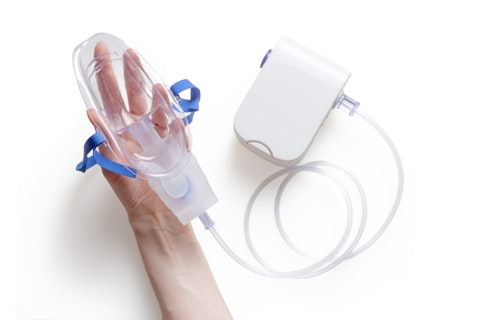The Vital Role of the Nose in Breathing: A Gateway to Respiratory Health
The nose, often overlooked in its significance, plays a pivotal role
in the intricate process of breathing, serving as a gateway to
respiratory health and overall well-being. This article embarks on an
enlightening exploration of the multifaceted role of the nose in
breathing, delving into its physiological functions, contributions to
respiratory health, and the profound impact of nasal breathing on human
physiology.
The Anatomy of Nasal Respiration
The nose, comprising the external nostrils and the nasal cavity,
serves as the primary entry point for inhaled air, initiating the
respiratory process and facilitating vital functions of the respiratory
system.
- Nasal Passages: The intricate network of nasal
passages filters, warms, and humidifies inhaled air, preparing it for
optimal respiratory exchange in the lungs.
- Olfactory Function: The nose houses olfactory
receptors, enabling the sense of smell and contributing to sensory
experiences and environmental perception.
Respiratory Filtration and Humidification
The nasal mucosa and cilia within the nasal passages play a crucial
role in filtering airborne particles and humidifying inspired air,
safeguarding the respiratory system from potential irritants and
maintaining optimal airway moisture.
- Air Filtration: Nasal hairs and mucous membranes trap dust, allergens, and pathogens, preventing their entry into the lower respiratory tract.
- Humidification: The nasal mucosa adds moisture to inhaled air, preventing dryness and irritation of the airway linings.
Nasal Breathing and Respiratory Health
Nasal breathing, as opposed to mouth breathing, offers numerous
benefits for respiratory health, including improved airway resistance,
enhanced oxygen uptake, and the promotion of optimal breathing patterns.
- Airway Resistance: Nasal breathing increases airway resistance, promoting more efficient and regulated airflow during respiration.
- Oxygenation: The nasal cavity aids in oxygen uptake and carbon dioxide elimination, optimizing respiratory gas exchange.
Olfactory Sensation and Emotional Well-being
The olfactory function of the nose contributes to sensory perception,
emotional experiences, and the intricate connection between smell,
memory, and emotional well-being.
- Sensory Perception: The sense of smell enriches sensory experiences, influencing taste, memory, and environmental awareness.
- Emotional Impact: Aromas and scents can evoke emotional responses, influencing mood, relaxation, and cognitive well-being.
Nasal Congestion and Respiratory Disorders
Nasal congestion, often associated with respiratory conditions such
as allergies, sinusitis, or nasal polyps, can impact breathing, sleep
quality, and overall respiratory health, underscoring the significance
of nasal function in well-being.
- Sleep Disruption: Nasal congestion can lead to snoring, sleep apnea, and disrupted sleep patterns, affecting overall rest and well-being.
- Respiratory Impedance: Congestion hinders airflow, impacting respiratory efficiency and comfort during breathing.
Conclusion: Nurturing Nasal Health for Respiratory Well-being
The nose, with its intricate anatomy and multifaceted functions, is a
cornerstone of respiratory health, influencing breathing, sensory
perception, and overall well-being. Nurturing nasal health is essential
for optimizing respiratory function, promoting emotional well-being, and
safeguarding overall health.
In conclusion, the nose, with its intricate anatomy and multifaceted
functions, is a cornerstone of respiratory health, influencing
breathing, sensory perception, and overall well-being. Nurturing nasal
health is essential for optimizing respiratory function, promoting
emotional well-being, and safeguarding overall health.






